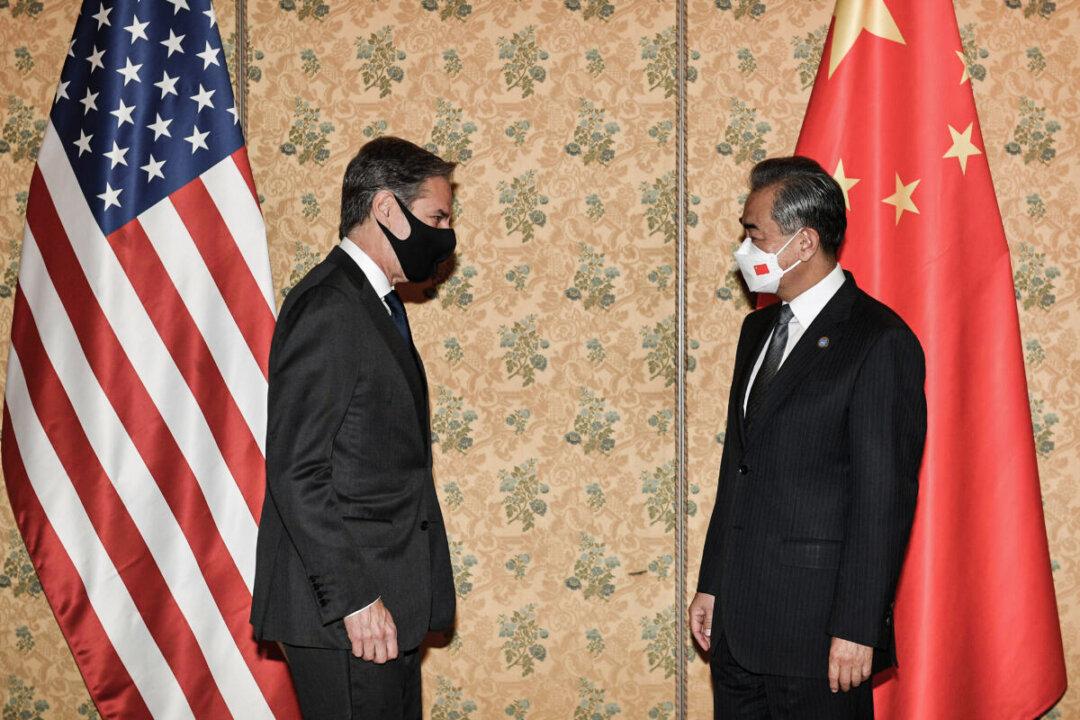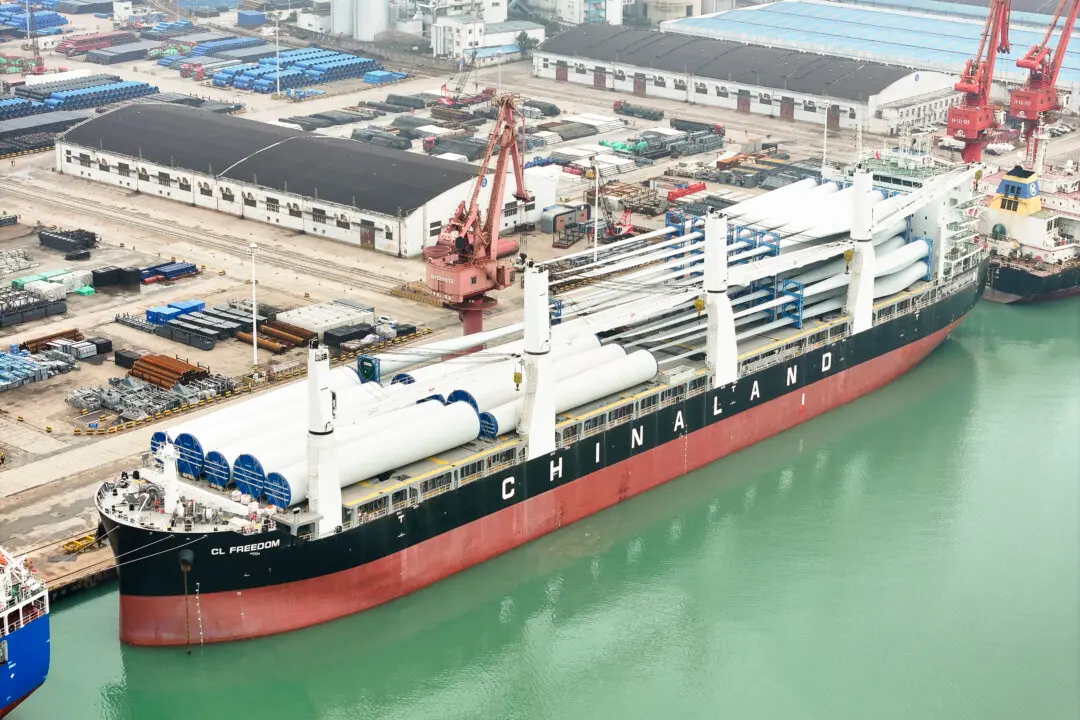U.S. Secretary of State Antony Blinken expressed concerns about Beijing’s actions toward Taiwan during a face-to-face meeting with Chinese Foreign Minister Wang Yi on Oct. 31.
The bilateral meeting on the sidelines of a summit of Group of 20 leaders in Rome comes as Beijing’s escalating military harassment toward the self-ruled island, which it claims as its own, has triggered growing international alarm.




